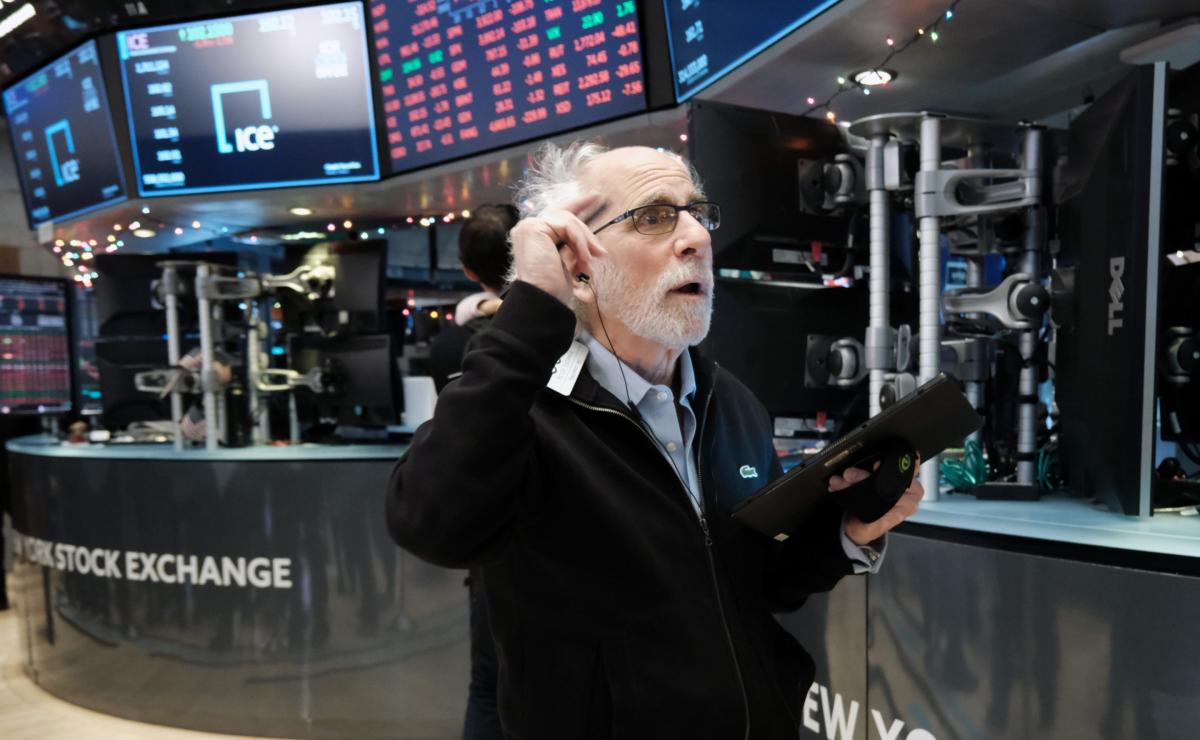In bear markets, shares really don’t usually tumble in a straight line.
In excess of the previous 50 a long time, even in the worst economic crises of the modern period, brief rallies have transpired 6.5 moments on normal for each bear market place.
Unsurprisingly, this yr has been no various. But all along the way, Morgan Stanley’s chief investment decision officer and U.S. fairness strategist Mike Wilson has warned investors not to drop into these “bear sector traps.”
And even immediately after a additional than 20% drop in the S&P 500 this 12 months, Wilson—who acquired the nod as the world’s top stock strategist in the latest Institutional Investor survey—believes stocks will fall even even further. Buyers have been as well targeted on the Federal Reserve’s charge hikes and inflation, he argues, when the genuine problem is fading economic advancement and corporate earnings.
“The earnings recession by by itself could be similar to what transpired in 2008/2009,” Wilson wrote in a Monday investigate note. “Our advice—don’t assume the industry is pricing this form of end result until eventually it really takes place.”
Wilson believes that the S&P 500 will sink to involving 3,000 and 3,300 in the initially quarter of 2023 from around 3,800 these days. And by the conclude of following 12 months, he expects the index will recover to just 3,900—or even 3,500 in a “bear situation.”
But despite new financial doomsday predictions by Wall Street for a economic downturn that is “double the typical length” or even “another variant of a Excellent Despair,” Wilson explained that the financial state will very likely climate mounting curiosity fees and higher inflation, or at a minimal keep away from a “balance sheet recession” and “systemic economical chance.”
For investors, on the other hand, the strategist presented a chilling warning: “[P]rice declines for equities will be a lot worse than what most buyers are expecting.”
A flashback to August 2008?
In his Monday take note, Wilson explained that investors are creating the exact miscalculation they did in August of 2008—underestimating the possibility that company earnings will tumble.
“We provide this up simply because we typically listen to from purchasers that everybody appreciates earnings are too higher subsequent year, and for that reason, the market place has priced it,” he wrote, referring to optimistic earnings forecasts. “However, we remember listening to comparable things in August 2008 when the spread between our earnings model and the street consensus was just as huge.”
For some qualifications, by mid-August 2008, the U.S. economic system was already in a recession and the S&P 500 was down 20% on the 12 months to close to 1,300. Many traders commenced to think the worst of the bear industry was around, but then the bottom fell out as company earnings sank.
By March of the pursuing yr, the blue-chip index was sitting at just 683. Wilson developed a chart evaluating some essential inventory sector stats from August of 2008 to currently in his observe.
In it, he pointed to the actuality that the S&P 500, currently, is however richly valued by buyers. In August of 2008, it was investing at roughly 13 occasions earnings, but today it’s up to 16.8 periods.
Back again then, the Federal Reserve experienced also now slashed fascination prices by 3.25% in an effort to rescue the U.S. financial state from what would afterwards be regarded as the Wonderful Economical Crisis.
Right now it programs to continue raising charges and continue to keep them large to struggle inflation. Wilson mentioned that this time “the Fed’s fingers could be a lot more tied” by significant inflation, this means it is significantly less ready to rescue shares as a result of price cuts if a economic downturn does take place.
Year-above-year inflation, as measured by the client rate index, was 5.3% in August 2008, as opposed to 7.1% these days.
Wilson does not feel stocks will expertise as large a drop as they did in 2008 for the reason that the housing sector and banking technique are in a better location, but he continue to expects the S&P 500 to fall to new lows for this downturn.
And even if a economic downturn is avoided, it may possibly not be a fantastic factor for traders.
“While some traders might acquire ease and comfort in that simple fact as a sign we could stay clear of an financial economic downturn upcoming year—i.e., a ‘soft landing,’ we would caution versus that consequence for fairness buyers mainly because in our view it just implies there is no reduction coming from the Fed even as earnings forecasts are lower,” Wilson wrote.
All over 2022, many equity buyers have been hoping inflation would come down, enabling the Fed to pause its interest fee hikes or even pivot to charge cuts. But Wilson argues earnings will undergo as inflation fades because U.S. corporations were capable to raise their earnings by increasing price ranges and passing on additional expenses to shoppers.
“Costs and inflation may have peaked but we see that as a warning signal for profitability, a fact we feel is nevertheless underneath-appreciated but can no more time be disregarded,” he wrote on Monday, including that the “earnings outlook has worsened” in latest months.
This tale was originally showcased on Fortune.com
Far more from Fortune:
People who skipped their COVID vaccine are at better hazard of traffic incidents
Elon Musk states having booed by Dave Chapelle lovers ‘was a first for me in serious life’ suggesting he’s mindful of creating backlash
Gen Z and youthful millennials have identified a new way to pay for luxury handbags and watches—living with mother and dad
Meghan Markle’s true sin that the British community just can’t forgive–and Us citizens cannot recognize


:max_bytes(150000):strip_icc():focal(605x417:607x419)/Alabama-Woman-Forced-to-Attend-Jury-Duty-011725-tout-b-2583e44b563f4d4fbeec46beb0a5ee35.jpg)



